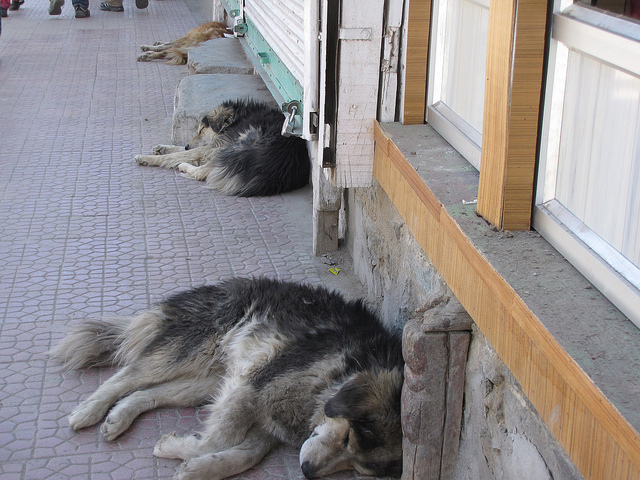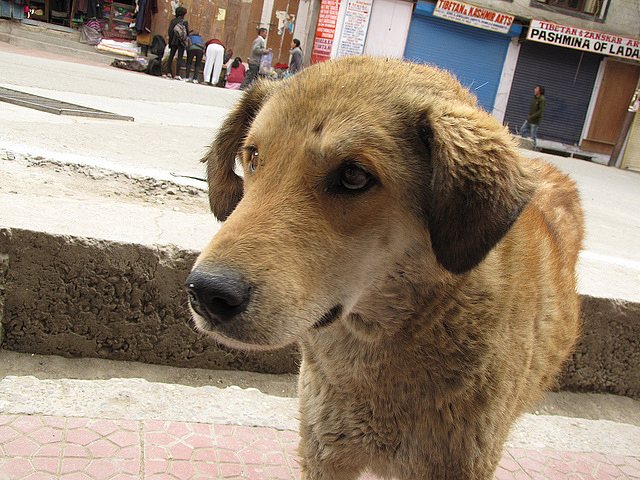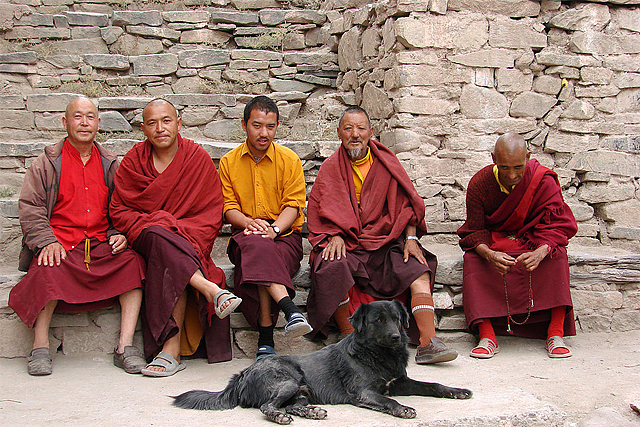A report in an Indian daily newspaper last week paid tribute to the storied peacefulness of Ladakh—and proceeded to castigate the local dogs for destroying it. The journalist, Ayesha Singh, wrote in the New Indian Express that “one of the most peaceful lands in the world” is marred by the barking of dogs and, worse, by their attacks on people.

She indicated that there are nearly 5,000 dogs in the region but only a small number of them have been properly neutered by veterinarians. The attacks on humans—so far this year, 360 have been reported—and the canine overpopulation have prompted some Ladakhis to begin poisoning the animals. They are everywhere. The outrage against all the stray dogs began three years ago when a girl was attacked and killed by a pack, which then proceeded to feast on her body.
Ms. Singh blamed the runaway population, in part, on the Indian Army troops stationed in Ladakh, who leave a lot of kitchen waste outdoors that the dogs feed on. In addition, the growing boom of tourists fills the garbage cans of restaurants, which also nourish many dogs. But the recent waning of the tourist season has decreased the amount of wasted food; that has prompted the dogs to begin attacking livestock—and people.

One solution, the author wrote, would be to increase the number of dogs being neutered. But there is a cost to the neutering program. It runs 700 to 800 Indian rupees to sterilize just one, though that amount would include an anti-rabies shot plus post-operative care for the animal. Almost 500,000 rupees (7,500 US dollars) would be needed per month for an effective neutering program in Ladakh.
One NGO that is trying to sterilize dogs, the Live to Rescue Stray Animal Care and Management Centre, located 25 km from Leh, performs hundreds of sterilizations every year. “But we need to do more,” said the advisor to the canine conservancy, Dr Ishey Mangyal. It is the only such facility in Ladakh.

The shelter is currently caring for 150 dogs, some of which are victims of accidents while others have been abandoned. The shelter is trying to give the dogs up for adoption as much as possible. Dr. Mangyal told Ms. Singh, “We’re giving incentives to vets to help us. Hopefully, we’ll be able to find a peaceful way for these dogs and human beings to co-exist.” The barking of dogs even disturbs the chanting of monks, the journalist wrote.
Unfortunately, the New Indian Express did not provide any way for compassionate readers around the world to contact the animal shelter and provide assistance.